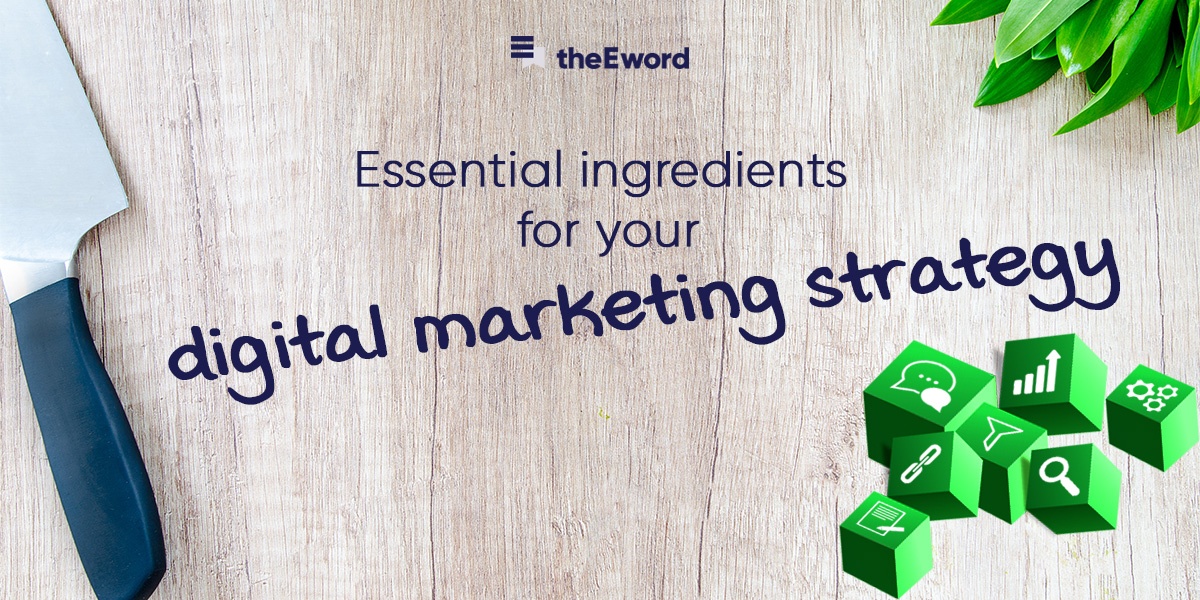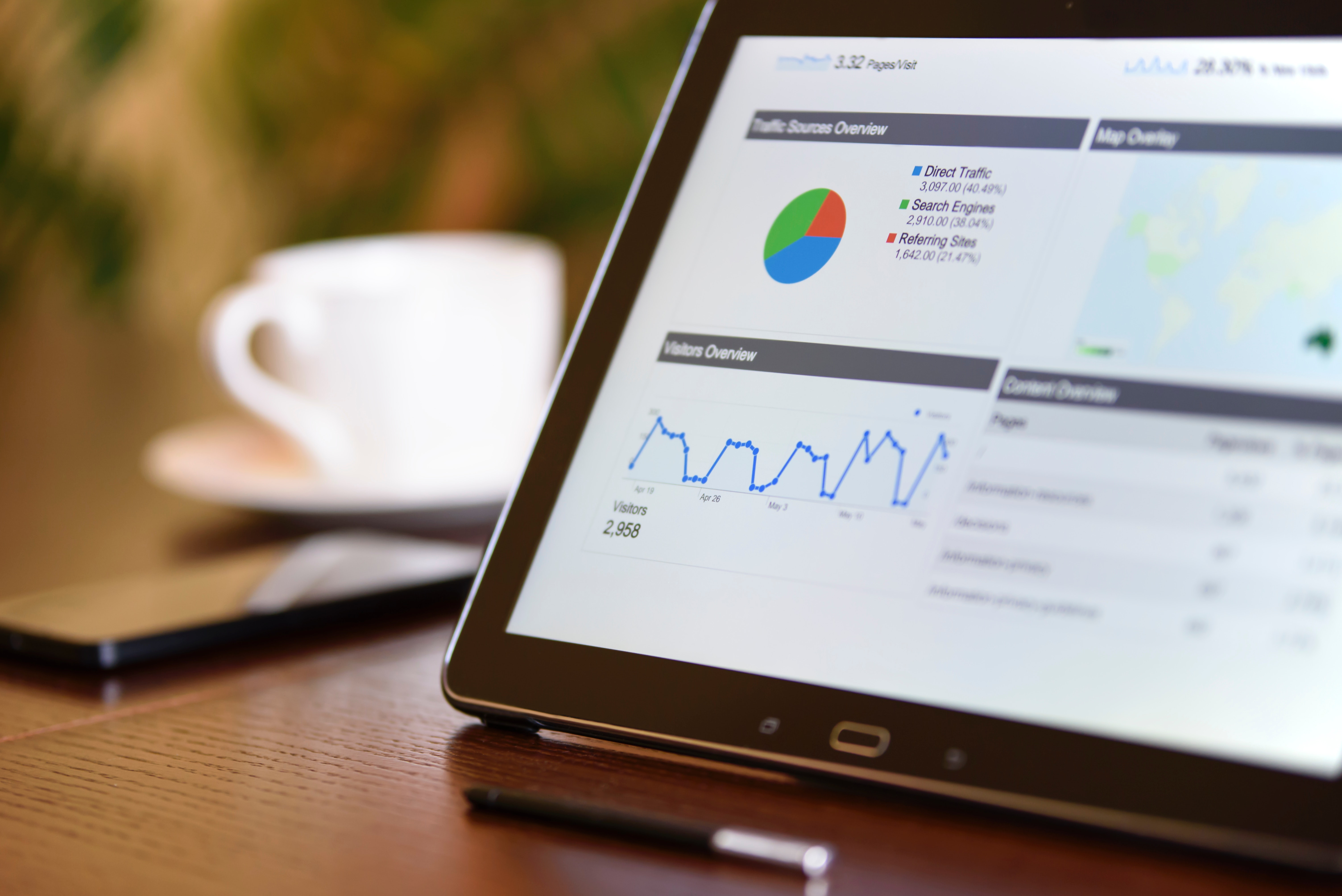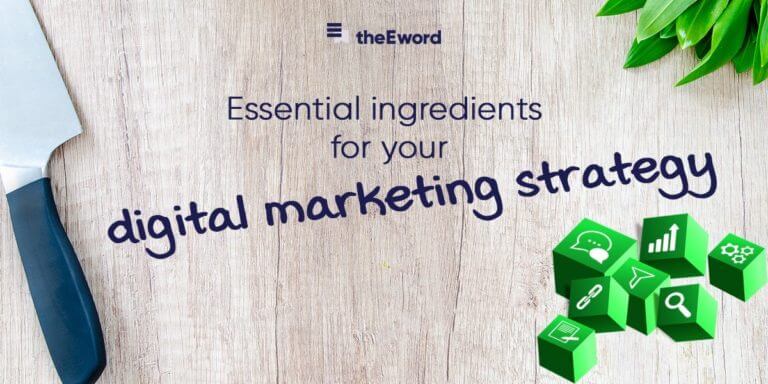 A good digital marketing strategy is a bit like a recipe for your favourite dish. Each requires a combination of subtle flavours.
A good digital marketing strategy is a bit like a recipe for your favourite dish. Each requires a combination of subtle flavours.
A dash of this, a dollop of that. The ingredients you use should complement each other, and they should collectively produce something tasty, nutritious, and filling.
You can stop drooling now. We’re talking about your digital marketing.
Whether it’s search engine optimisation, pay-per-click advertising, or paid amplification on social media, your digital strategy must be fully integrated and in line with the latest technological developments.
With that in mind, here are the ingredients you’ll need in order to create a fully integrated, results-driven marketing strategy.
Blog
The old stalwart of content marketing, the blog serves as an effective bridge between you and your customers. You can use a blog to talk about issues relevant to your audience, to discuss your product or service, and even to report on the latest news and developments within your industry (this way you’ll be seen to be reactive and ‘on-the-ball’). You can also optimise your blogs for search terms, too – longtail keywords get the best conversion rates, remember!

With the right tone of voice, a good blog will close down the distance between customer and company. It’s an effective touchpoint upon which you can build a business with a distinctive persona.
Here’s a little statistic, if you’re still not convinced: according to HubSpot research, B2B companies that blogged more than 11 times a month had almost three times more traffic than those who blogged zero to one times a month.
The numbers don’t lie, right?
Social media
Social media is an invaluable tool in your digital marketing strategy. Like blogging, a decent social media presence builds and nurtures a relationship between your company and its customers. However, since the first ever Tweet came about in 2006, there are now 330 million daily users active on Twitter.
The high volume of users means that there is a constant pressure to stand out from the crowd. You also have to be savvy to the latest updates and know how to use them to your advantage.
Whether it’s Twitter increasing its character limit or Facebook switching up its algorithm, it all affects how your audience encounters your content and engages with what you have to say.
For example, in January this year, Facebook overhauled its algorithm to push more relevant posts to the top of users’ newsfeeds. In an attempt to swap out some of the business ads for posts from family and friends, the update made the tactics businesses had hitherto used more or less redundant.
It’s important to stay on your feet and know how to react to such updates. Being slow to change with the times will result in you being left way behind, which can be costly in the long-run.
SEO
On any given day, Google receives over 3 billion searches. These are all potential customers, each with an enquiry that your content can assist with. Needless to say, there is still massive potential with SEO.
This potential increases each year, and with each update Google throws our way. In a way, these updates are updates on quality. High-quality content is key. Armed with the right keywords, your content can propel you to the top of search. Search engines are now much likelier to reward high-quality content that optimises for a keyword moderately and covers all bases.
Thinking about it, SEO is yesterday’s market research for today’s digital world. With it, you get quality insight into your audience’s motivations, their interests, and their online behaviours. Use keyword research as a way to better understand your audience, and then create a strategy that will help influence them and nurture their buying decisions.
PPC
Pay-per-click advertising is the most direct marketing tool you possess, and it’s definitely an essential. It can get you consistent results and can give your content that extra oomph to get it in front of the right audiences. One of the best things about PPC campaigns is that you have complete control of your budget. You can tailor your budget to exactly how much you want to spend, so there’ll be no margin to overspend (unlike advertising of old, where you had little clue as to where exactly the money was going).
Here’s another reason why you need PPC in your digital strategy: you can choose, with utmost precision, where you want your ads to be displayed. With pay-per-click, you can target the right audience, at the right time, using the right phrases.
What’s more, consumer attitudes towards paid ads have massively improved. 2017 statistics show that 65% of customers click on ads when purchasing. If you’re not making the most of PPC in your business, you’re missing a trick. A very profitable trick, too.
Web design
As the technology around digital marketing continues to evolve and develop, the focus on user experience increases. Your website needs to be the focal point of your whole digital strategy, and it has to be geared towards making the experience as seamless as possible.
Slow load-times and laggy sites have been proven to put customers off. In fact, studies show that a huge 79% of web shoppers who have trouble with website performance say they will not return to the site to buy again. Additionally, around 44% would tell a friend if they had a poor experience shopping online.
Website design isn’t just limited to site speed, though. It includes some of the following: making sure your website is easy to navigate, placing appropriate calls-to-action (CTAs), optimising it for mobile as well as desktop, and ensuring that all content is optimised for search.
Remember that a poorly designed website can, and will, scupper your best digital marketing efforts. That’s why web design is arguably – and it’s an argument that we’re sure has occurred in more than a couple of offices – the most important part of your digital strategy.
Email marketing
Did you know that 73% of millennials identify email as their preferred means of business communication? How about the fact that the use of emojis in email marketing rose by 775% between 2015 and 2016? What was it about those couple of years that saw the meteoric rise of email emojis?
Email is as popular is it has ever been, and in recent years it’s become far more sophisticated: now you can now combine your creative brain-power with the time-saving convenience of automation.
It has taken off in such a way that this technology could automate 45% of the activities people are paid to perform. While this sounds a bit like the dreaded robots-taking-our-jobs scenario, it’s more about maximising our creative potential in a more efficient way. In fact, a third-party study from 2017 revealed that 88% of marketers said that reducing the time spent preparing reports and analysis would be extremely valuable to their businesses. This would then grant more time for strategic work, giving marketers more time for ideation.
Analytics
When you set targets, you need a system to review your success and make improvements for the future. This is where analytics comes in: it is vital that you keep a close eye on results, analysing what you’ve done well and identifying where you can improve.
Take Google Analytics, for example. Even the most rudimentary understanding of Google Analytics can give you invaluable insight into your strategy, and can drive you in the right direction. Imagine what a seasoned Analytics marketer can do?!
At its highest estimate, there are around 48 million websites that currently use Google Analytics. If you’re not yet using it, you’re missing out on some vital insights that could potentially propel serious business growth.
Above all, your marketing strategy needs to be intelligent, informed, and integrated. In essence, these three ingredients are must-haves.
If your marketing strategy is lacking, or is in need of a vital refresh, download our (free) content writing guide here. You can give us a call on 0161 848 4300, or book in a call with our Director Kleon West, who is more than happy to talk through your options.

